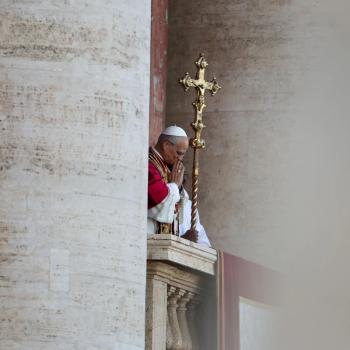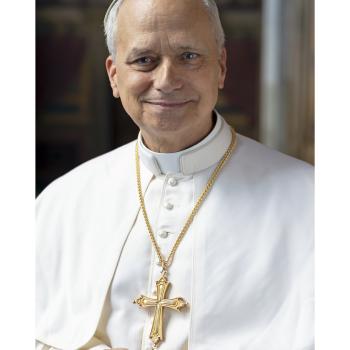His renown for energy and wisdom throughout Europe was such that he was recurrently sought out to arbitrate the stickiest of disputes. An intense man, Bernard was not shy about expressing and acting upon his beliefs. Always fierce if not always fair, Bernard's fervent convictions made him quick to see clear lines, and quick to pounce on real as well as supposed threats to what he held sacred. He had little patience for human pettiness and possessed a blistering wit with which he devastated contemptible opponents. Bernard entered the ruckus over a disputed papacy in 1134 and succeeded in preventing a potential ecclesiastical shipwreck. He lashed out against the brilliant theologian Peter Abelard for being too rational and pushy and ignoring the mystical aspects of faith. Another pope once ordered Bernard to stay in his monastery and stop meddling in things that didn't concern him. But Bernard's vehemence regarding what was best for the church compelled him to fire off a curt missive even to the pope himself.
Unfortunately his last years were grieved by the failure of the Second Crusade. The pope imposed upon him the duty of rallying the faithful to arms in order to oust infidels from the Holy Land. Close to a million men sprang to arms in response to his preaching. However, the venture was a disaster before it even began. Most of the troops died of disease en route while most of the rest ended up killing each other over disputes that arose from trivial bickering and strife. Bernard became the scapegoat for the entire catastrophe such that when he died in 1153, it was under a cloud of apparent failure. Yet soon after his death, many recognized that a significant figure had passed from their midst. So Pope Alexander III canonized him in 1175, and in 1830, Bernard was formally accorded the title "doctor of the church." Because his teaching remained in the mainstream of patristic tradition, Bernard is often referred to as the last of the Church Fathers.
Bernard once wrote that it was the need to rein in his passionate intensity that drove him to join the more rigorous and disciplined Cistercian order in the first place. As much as he admired the Benedictine way of life, he didn't think it would be able to handle him. Not that the Cistercians necessarily did. His passions managed to find their outlet anyway, not only in his contentious engagements but also in his sermons, especially those on the Song of Songs. As it apparently contains little by way of religious content, Song of Songs probably would have been written off as some piece of pulp fiction had it existed outside the Bible. Yet within the Bible, Bernard recognized its lucid dealings with earthly sexual bliss as an image of heavenly love itself. Bernard understood that the God who created sexual love called it good, which meant that it was good enough to bear the holiness of God.
He asserted that the young woman in verse 2 who expresses her strong desire for physical and reciprocal expressions of love by her lover approximates the appropriate longings of all faithful people for their ultimate union with Christ. The intended eternal bond between Bride and Bridegroom, itself initiated by divine grace, stimulates this longing. It draws you back toward the God who made you by propelling you forward into your redeemed likeness—dressing you in the wedding garments of salvation woven with the paradoxical fabric of death and resurrection. Once wed by faith to Jesus, marked by baptism, your marriage consummated by the power of the Spirit, you belong to God forever. Bernard began preaching his Song of Songs sermon series in 1135 and continued it for eighteen years. Only his death kept him from going longer. Enjoy the following excerpts from Bernard's kissing sermons based on verse 2; catch both his passion for present rapture as well as his anticipation of superior heavenly correspondence.
Tell us I beg, by whom, about whom and to whom is said, "Let him kiss me with the kiss of his mouth"? Why this sudden and abrupt beginning in the middle of a speech? The author breaks into these words as if he had mentioned someone in the text prior to whom this woman is replying as she demands a kiss. Moreover, if she asks for or demands a kiss from someone, why does she clearly and specifically say, "with his mouth" as if lovers were in the habit of kissing with anything but the mouth or with mouths that are not their own? Yet she does not say, "Let him kiss me with his mouth," but more intimately, "with the kiss of his mouth." What a delightful way of putting it. We begin with a kiss and the lovely face of Scripture readily attracts us and leads us on, so that we delight to search into what lies hidden in it even if it costs us effort. No difficulty can weary where the sweetness of such discourse eases the labor.
How I pray that a burning desire and a longing of heart may be aroused in me by these words, "Let him kiss me with the kiss of his mouth." How great would be the grace released by the touch of those lips. I am no longer content with what Moses says, for he sounds to me like someone who cannot speak well. Isaiah is a man of unclean lips and Jeremiah a child who does not know how to speak. All the prophets are empty to me. But He, He of whom they speak, let him speak to me. Let him kiss me with the kiss of his mouth, whose gracious presence and eloquence of wonder causes a spring of living water to well up in me to eternal life.





